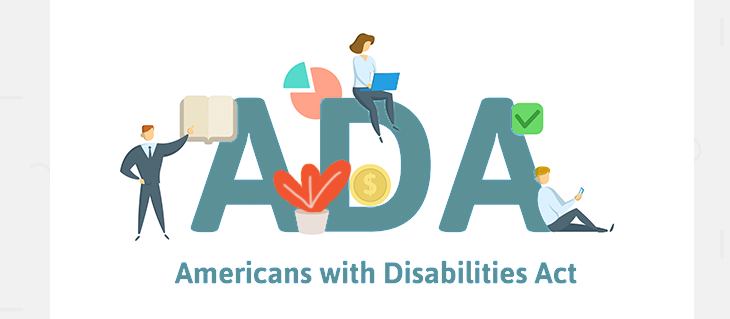Ninth Circuit Rules ADA Applies to Websites and Mobile Apps

Updated Rulings for ADA Appliance on Your Website
We recently made some updates to one of our clients, Keating, Bucklin & McCormack, Inc., P.S. to bring their site to a new level of ADA compliance. With the changes being made and recent rulings, one of their associate attornies decided to write about the recent ruling and how it applies to you.
As changes are being made we're excited to feature this short article, along with some further resources from associate Attorney Brian Augenthaler.
"The Ninth Circuit has held that the Americans with Disabilities Act (the “ADA”) applies to websites and mobile apps. Robles v. Domino's Pizza, LLC, 913 F.3d 898, 905 (9th Cir. 2019), cert. denied, 140 S. Ct. 122, 205 L. Ed. 2d 41 (2019).
The plaintiff in the lawsuit, Guillermo Robles, a person with blindness, sued Domino’s Pizza for failing to design, construct, maintain, and operate its website and app to be fully accessible to people with blindness. Mr. Robles accesses the internet using screen reading technology to access information contained on websites. The software interprets text and vocalizes it. Mr. Robles was unsuccessful in trying to order online a “customized pizza” from a nearby Domino’s. His software was apparently unable to interpret the website and app for the online order. He filed a lawsuit, arguing that the ADA applied to Domino’s website and app.
The Ninth Circuit agreed with Mr. Robles that the ADA did apply to Domino’s website and app. According to the Ninth Circuit, Domino’s mobile offerings fall within the ADA’s mandate to provide auxiliary aids and services to make visual materials available to individuals with blindness. Domino’s argued that the ADA did not apply to the website because customers predominantly accessed the website and app away from the physical location (known under the ADA as a place of “public accommodation”). The Ninth Circuit rejected this argument, reasoning that the inaccessibility of the website and app impeded access to the goods and services of the physical Domino’s stores. It was heavily advertised that a person could order a pizza online and pick it up moments later at the pizza place.
In order to understand whether your company’s website must comply with the ADA, it is important to understand an aspect of the Ninth Circuit’s analysis that it described as “critical”: the link (or “nexus”) between your website or app and your physical location. By describing the essential link between the Domino’s website and picking up a pizza for takeout, the Ninth Circuit appears to be limiting the ADA’s application to those locations where a company’s physical location and virtual presence are firmly connected. Other cases suggest this interpretation as well. Whether your website/app needs to comply with the ADA will depend, like most things in civil rights law, on a case-by-case analysis.
It was widely expected the U.S. Supreme Court would review and possibly overturn the Ninth Circuit’s ruling in the Robles case, but it did not. On October 7, 2019, the Court denied Domino’s petition for writ of certiorari, which can be interpreted as a tacit endorsement of the Ninth Circuit’s holding. At a bare minimum, the Robles case is the law in Washington, Oregon, Idaho, Montana, Nevada, Arizona, Hawaii, California, and Guam.
Keating, Bucklin & McCormack recently updated its website in light of the Robles decision. While there are no official regulations in place governing ADA website accommodations, the standard Mr. Robles sought the court to impose was a set of technical specifications known as the Web Content Accessibility Guidelines 2.0, the “WCAG.” The expense and necessity of bringing your website into compliance with the WCAG will depend on the complexity of your website and the nature of your business."
Unsure Whether Your Site Should Be ADA Compliant?
Frequently, these lawsuits begin with a letter from a law firm, threatening to sue you if you do not immediately agree to modify your website and—of course—pay the demanding law firm for the pleasure. In terms of legal advice, please contact Brian Augenthaler at 206.623.8861 or [email protected] if you receive such a letter or if you have questions about what steps (if any) you should take to ensure your website complies with the ADA.
If you've taken the steps to decide to update your site to meet ADA compliance, feel free to reach out to efelle to begin the process.